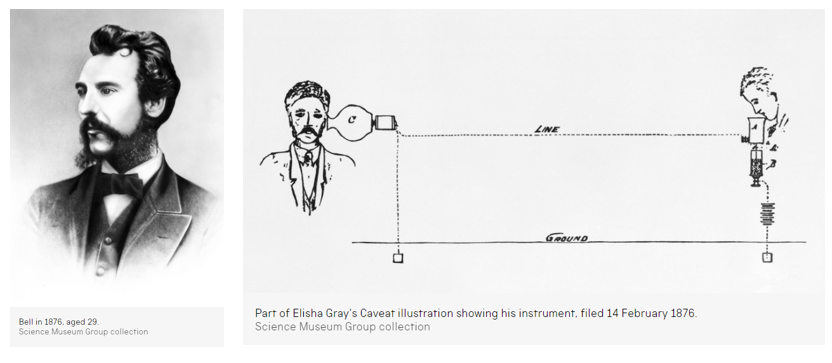The future of work is a term used to describe the changing nature of work and the impact of technology on the workforce. It is a complex and evolving topic with no easy answers. However, some key trends are likely to shape the future of work, including the rise of artificial intelligence (AI). Unsurprisingly, big tech companies have started embedding AI-powered chatbots into their existing workplace technology solutions.
That's all good and in the right direction. However, it also means that, for AI to have the desired impact on the future of work, organisations must find creative ways to help accelerate technology adoption at the workplace. The answer to the challenge may lie with how effectively organisations embed AI-powered chatbots into their change management and technology adoption strategies.
Artificial intelligence can accelerate the speed of technology adoption by automating processes, improving decision-making, providing personalised recommendations, and analysing large amounts of data to identify areas for optimisation and improvement. Additionally, AI-powered chatbots can provide 24/7 support to users, reducing the need for human intervention and speeding up the adoption process.
In brief
- Over many years, technology has been a fundamental positive enabler to the future of work.
- With big tech rushing to integrate generative AI technologies into their products, technology's role in shaping the future of work will only get bigger. Therefore, the speed at which organisations adopt new technology in the workplace will be crucial.
- However, technology adoption in the workplace is a complex process that depends on many factors, including the type of technology adopted, the organisation's culture, and the way and manner the organisation effectively deploys change management to manage the employee's fear and frustration and any lack of skills to diffuse and assimilate change.
- To accelerate the future of work
(FOW), organisations need to increase the speed of technology adoption
(TA)
in the workplace; artificial intelligence
(AI)
powered chatbots - such as OpenAI's ChatGPT - can be used to overcome some of the barriers to technology adoption in the workplace by providing more powerful and accessible tools to personalise people's experiences of using new technology, providing real-time feedback, and automating mundane tasks that free people to explore other ways to use technology to advance their work.
- In a nutshell:
AI → TA → FOW
where:
AI
= artificial intelligence
TA = technology adoption
FOW = future of work
It's been an exciting couple of weeks.
On March 16, Microsoft launched Microsoft 365 Copilot, its latest AI-powered innovation in Microsoft 365. And on March 21, Google announced Bard for over-18s, its rival to OpenAI's ChatGPT. By doing so, Microsoft and Google have all but surely put Big Tech's race into motion to commercialise generative AI at scale.
There's been much talk about how these AI-powered chatbots will revolutionise the future of work, and like most of you, I, too, am genuinely excited about its prospects. And while a variety of factors - such as digital transformation, remote work, agile methodologies, the gig economy, and diversity and inclusion - will shape the future of work, there is none more fundamental to advancing the future of work than the acceleration of technology adoption at the workplace.
But, of course, the role of the adoption of technology in transforming the future of work is not new. Its been a driving force in the workplace for over 100 years, and this time, it won't be different as it will be the most significant, most crucial enabler of how AI shapes the future of work.
Let's roll back the clock.
Let's start with the
Industrial Revolution, which began in earnest in the
1830s and 1840s. With it came technological advancements that transformed the future of work by enabling mass production, reducing the need for skilled labour, creating new industries and jobs, and increasing efficiency and productivity. These changes laid the foundation for the modern industrial economy and continue to shape the future of work today.
After the Industrial Revolution, the
Telephone and Telegraph were introduced. According to the science museum, Alexander Graham Bell and Elisha Gray simultaneously - but separately - worked on the Telephone and Telegraph – they even submitted their patents to the Patent Office in Washington DC on the same day, February 14 1876. However, the Scotsman, Bell, will eventually come on top. On
March 7, 1876, Bell was granted US patent 174465A for the telephone, a telegraphic method of transmitting speech. While this is not a history lesson about who invented the telephone, it, however, underscores the moment in time when the telephone began to play a significant impact on the future of work by enabling real-time communication over long distances, increasing efficiency, expanding markets, and creating new job opportunities. These technologies laid the foundation for modern communication technologies and continue to shape the future of work today.
Then came
Computerisation. The advent of computers in the
mid-20th century revolutionised the way we work. Computers enabled the automation of tasks such as record-keeping and data analysis, freeing workers to focus on more complex tasks. The internet followed shortly after. The widespread adoption of the internet in the 1990s and 2000s enabled global communication and collaboration, making it easier for businesses to work across geographic boundaries.
By the
2000s and early 2010s,
Mobile Devices such as smartphones had become mainstream for workers to stay connected and productive even when they are away from their desks. However, even though the first smartphones, such as iPhone and Android devices, were introduced in the mid-200s, it wasn't until several years later that they became widely adopted by both consumers and businesses.
This is a pivotal moment for shaping the future of work, but first, we must accelerate the speed of technology adoption at the workplace.
According to a recent study by the World Economic Forum, 72% of employers are already using or planning to use artificial intelligence (AI) in the workplace by 2025. The study also found that 86% of employers believe that AI will positively impact the future of work.
A recent study by the Pew Research Center found that 84% of US workers have used a new technology at work in the past year. The study also found that the most common new technologies adopted in the workplace are mobile devices, cloud computing, and software applications.
These studies suggest that people are adopting new technologies quickly to support the future of work. However, it is essential to note that the speed of technology adoption varies by industry and organisation. Some industries and organisations are adopting new technologies more quickly than others. It is therefore not surprising that EY's Global Managing Partner - Client Service, Andy Baldwin, has said, 'although people have access to state-of-the-art technology, they choose not to use it'. He points the finger at change management and lists poor user experience, training, and cybersecurity concerns as reasons that may discourage people from using technology.
And so, as I continue to join many of you in celebrating these incredible milestones, we are witnessing with ChatGPT, I also started to think about how generative artificial intelligence (AI) chatbots can influence my professional domain: the business of driving technology adoption to create positive outcomes for people, and ultimately accelerate the future of work.
01. Personification.
Chatbots can be used to personalise the technology adoption experience for each user, tailoring the training and support to their specific needs and preferences. Doing so increases engagement and makes adopting new technologies more manageable for end users.
02. Gamification.
AI can use gamification techniques to make adopting new technologies more fun and engaging. For example, organisations can use AI-powered games and simulations to help users learn new skills and technologies in a low-pressure, interactive environment.
03. Real-time feedback via virtual assistants.
AI-powered virtual assistants can be used to provide personalised, 24/7 support to users, answering questions and providing guidance as needed. Doing so can reduce the burden on human trainers and support staff and make adopting new technologies more convenient and accessible. They can also be used to track user behaviour and provide feedback on how they use technology. For example, Duolingo uses AI to track users' progress in learning new languages and to provide feedback on their mistakes.
04. Automation.
Chatbots can automate some of the most complex and mundane tasks embedded in technology processes. For example, instead of the user clicking many buttons over multiple screens, an AI-powered workflow can be programmed to automate the process. Doing so can improve the user experience and free the human employee to focus on more creative and strategic work.
05. Predictive analytics.
Organisations can use AI-powered predictive analytics to identify users who may be struggling with the technology adoption process and provide targeted support and training to help them succeed.
06. Continuous learning.
AI can help organisations create a culture of continuous learning by providing users with personalised training and development opportunities. Doing so can help users stay up to date with the latest technologies and build their skills over time.
In Summary:
- To accelerate the future of work
(FOW), organisations need to increase the speed of technology adoption
(TA)
in the workplace.
- Artificial intelligence
(AI)
chatbots - such as OpenAI's ChatGPT - can be used to overcome barriers to technology adoption in the workplace by personalising people’s experiences of using new technology, providing real-time feedback, and automating mundane tasks that free people to explore other ways to use technology to advance their work.
- As we accelerate technology adoption, artificial intelligence will rapidly advance the future of work.
- In a nutshell:
AI → TA → FOW
where:
AI
= artificial intelligence
TA = technology adoption
FOW = future of work
How North Sakara can help you
North Sakara's approach begins with working with our clients to establish clarity of purpose for their transformation journey.
We apply common sense design thinking principles, expertise, data-driven insights, tools, frameworks, and methodologies from our proprietary platform, the changeportal.io®, to better understand the expected ROI of transformations for our clients, their people, customers, shareholders, and society.






